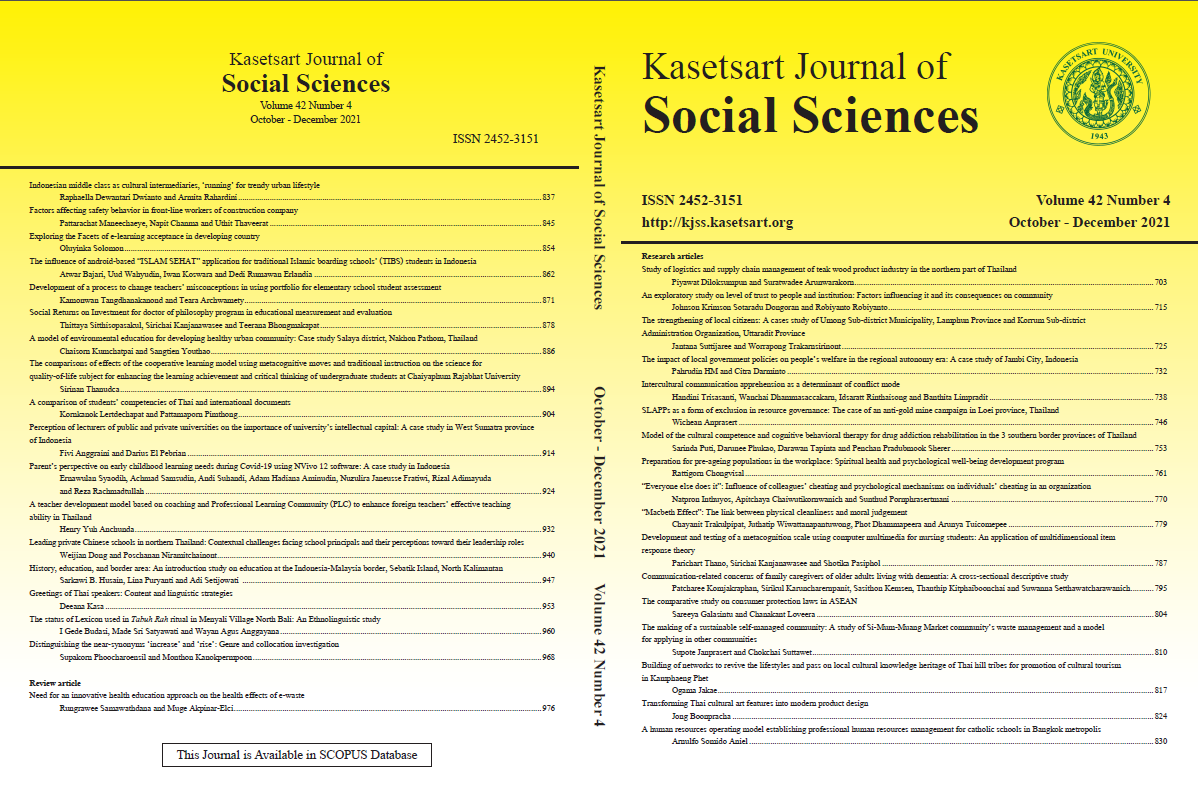The impact of local government policies on people’s welfare in the regional autonomy era: A case study of Jambi City, Indonesia
Keywords:
decentralization, local government, policy, welfareAbstract
This study was conducted to analyze the impact of local government policies on the welfare of the community. This is because after the implementation of decentralization policy in autonomy format, local government became the main locomotive of development in Indonesia. In implementing of regional authonomy, local governments should have a series of innovative policies through development programs, without exception of Jambi City Government, Jambi Province. These development programs are carried out so that the community welfare that has been coveted for a long time can be achieved. The study was a qualitative approach with literature research conducted by reviewing development programs of Jambi City and welfare’s data during year 2015 to year 2018. The research’s results show that Jambi City Government has several policies in economic, education, health and public service, especially Bantar Program and Bangkit Berdaya Program. These policies have been able to improve people’s welfare, which is indicated by a decrease in poverty rates, an increase in the human development index, as well as an increase in school enrollment rates and gross domestic income. Nevertheless, poverty (8.84%) and unemployment (15.754%) are still challenges that must be immediately resolved by Jambi City Government through innovative policies in the future.
Downloads
Published
How to Cite
Issue
Section
License

This work is licensed under a Creative Commons Attribution-NonCommercial-NoDerivatives 4.0 International License.
This is an open access article under the CC BY-NC-ND license http://creativecommons.org/licenses/by-nc-nd/4.0/










